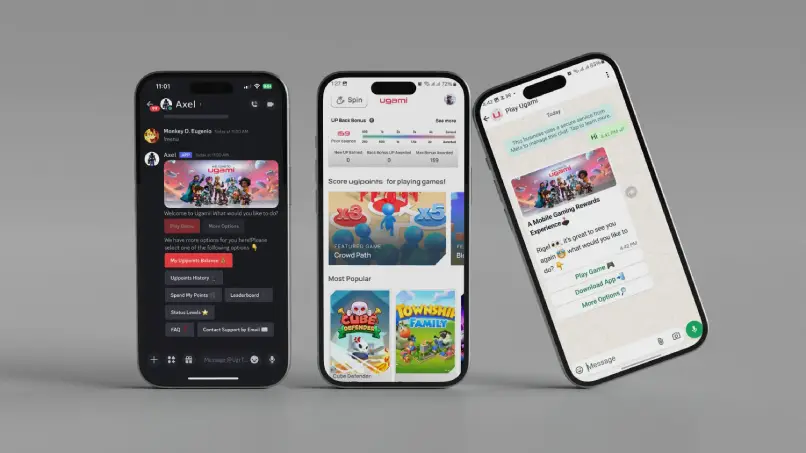How Play-to-Earn Benefits Are Changing the Gaming Experience
The introduction of Play-to-Earn rewards marks a considerable advancement in the video gaming landscape, shifting the focus from simple amusement to genuine economic engagement. This makeover welcomes gamers to invest not only their time yet additionally their funds, cultivating a sense of possession and deeper involvement within video game communities. As varied demographics embrace these opportunities, new areas emerge, blurring the lines between recreation and investment. This shift raises vital questions about sustainability and the future of gaming. What effects could this have for the sector and its players?
.png)
Advancement of Gaming Versions
The landscape of pc gaming has actually gone through a considerable improvement over the years, progressing from traditional pay-to-play designs to much more cutting-edge structures that focus on individual engagement and monetization. Video games were mainly marketed as standalone products, calling for ahead of time settlements for accessibility. This model, while efficient in creating profits, frequently limited player communication and area building.

In the last few years, the rise of blockchain innovation has presented play-to-earn systems that basically change pc gaming characteristics. These versions not just offer a system for gamers to earn benefits yet also equalize the gaming economy, allowing users to have in-game assets. This evolution mirrors a broader pattern in the direction of community-driven experiences, where developers and gamers work together in shaping the pc gaming landscape, inevitably redefining how worth is viewed in the video gaming market.
Benefits of Play-to-Earn Solutions
Opening new opportunities for player involvement, play-to-earn systems offer a variety of benefits that essentially boost the gaming experience. These systems encourage players by supplying tangible incentives for their time and effort, promoting a sense of ownership and financial investment in the game. This intrinsic inspiration drives players to engage more deeply, discovering game auto mechanics and areas that they might or else ignore.
In addition, play-to-earn versions democratize pc gaming by leveling the playing area. Gamers from numerous backgrounds can profit from their skills and imagination, enabling brand-new participants to experience monetary benefits that were commonly reserved for developers and publishers. This change urges a more varied player base, improving the gaming community with different point of views and experiences.
Furthermore, play-to-earn systems promote community structure, as gamers team up and contend within decentralized atmospheres. This communication cultivates social connections that boost satisfaction and retention, as players feel a sense of belonging.
Finally, these systems can cause boosted durability for video games, as continuous player interaction commonly converts into continual rate of interest and financial investment in future versions or expansions, ensuring a lively video gaming landscape.
Financial Influence On Gamers
Play-to-earn systems not just improve player interaction but also have significant economic implications for people involved. These systems allow players to monetize their time and abilities, transforming video gaming from a pastime right into a practical income resource. As players earn copyright or in-game properties that can be traded or offered in real-world markets, they obtain financial rewards that can significantly affect their personal economic situations.
The financial design cultivates a new age of entrepreneurship, as gamers can purchase various pc gaming ecosystems or navigate to this site create strategies to optimize their profits. This possibility for income generation draws in a diverse group, including those in areas with restricted task possibilities - play to earn rewards. Many gamers are currently checking out gaming not just as home entertainment however as a path to financial empowerment.
Nevertheless, it is essential to recognize the volatility related to cryptocurrencies and the potential for market changes to influence profits. Players need to navigate these dangers while balancing their gaming and economic tasks. Generally, the economic effect on players is profound, reshaping their relationship with pc gaming and opening up opportunities for wealth creation in a significantly electronic economic situation.
Neighborhood Building in P2E Gamings

Gamers in P2E environments regularly develop guilds or alliances, developing networks that help with resource sharing, critical planning, and mutual assistance. These teams usually engage in participating missions or competitions, additionally strengthening their bonds and improving the general pc gaming experience. In addition, community-driven occasions, such as tournaments and social events, serve to join players, foster friendship, and incentivize participation.
Additionally, programmers actively engage with their areas, incorporating feedback and recommendations that form video game development. This joint strategy not only equips players but also makes certain that games evolve in alignment with player rate of interests, improving satisfaction and long-term involvement. Eventually, area building in P2E games is not just a function; it is a fundamental facet that changes the gaming landscape into a much more comprehensive and interactive environment.
Future Fads in Gaming
The pc gaming sector's evolution is positioned to welcome several transformative trends that will redefine gamer engagement and experience. One of the most considerable patterns is the integration of fabricated intelligence (AI) to develop more personalized gaming environments. AI can evaluate gamer habits and preferences, allowing developers to customize experiences that reverberate deeply with specific customers.
Furthermore, the development of digital and increased fact (VR/AR) technologies is set to boost immersion, supplying gamers the ability to engage with digital worlds in unmatched ways. This will not just elevate gameplay yet likewise foster social connections, as gamers can work together and compete in common settings.
Additionally, the increase of blockchain technology will continue to affect the gaming landscape, allowing true possession of in-game possessions through non-fungible tokens (NFTs) This trend will empower gamers to trade and monetize their pc gaming experiences, better blurring the lines between video gaming and investment.
Conclusion
By integrating economic incentives right into gameplay, players are significantly involved, cultivating a check these guys out feeling of possession and financial investment in digital settings. As these fads continue to progress, the blurred lines in between home entertainment and financial investment will likely redefine the future of pc gaming, shaping brand-new experiences for gamers worldwide.